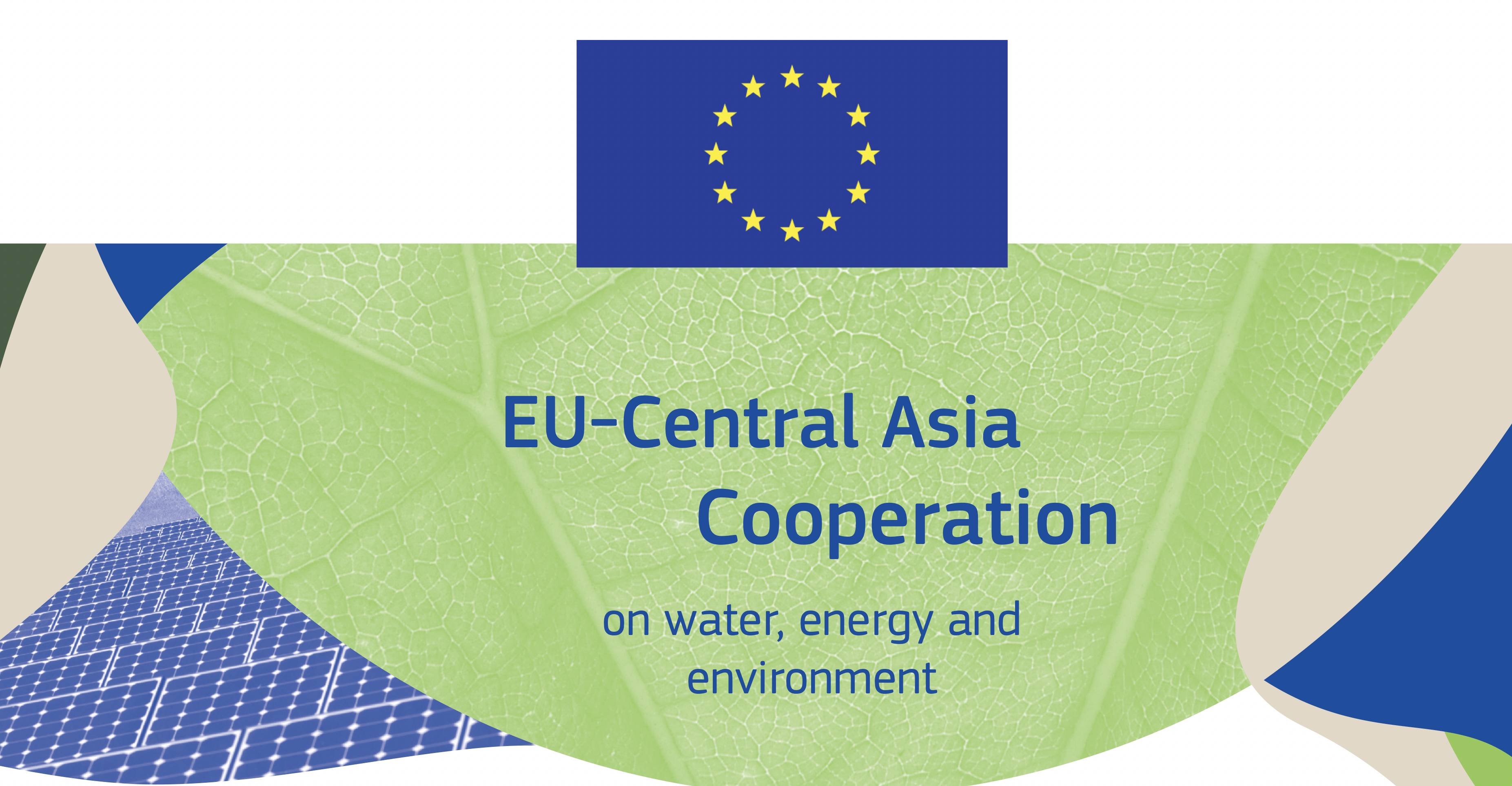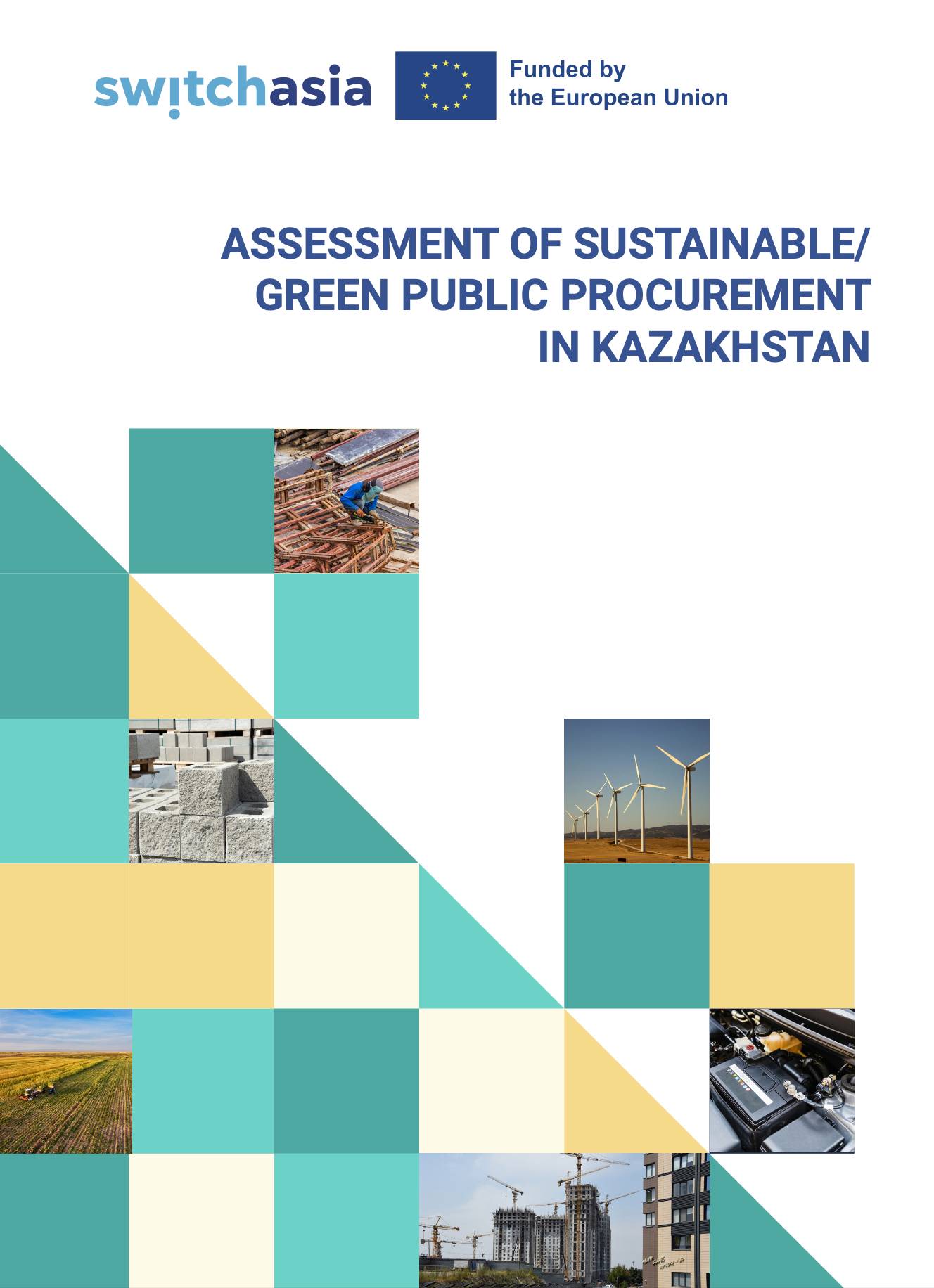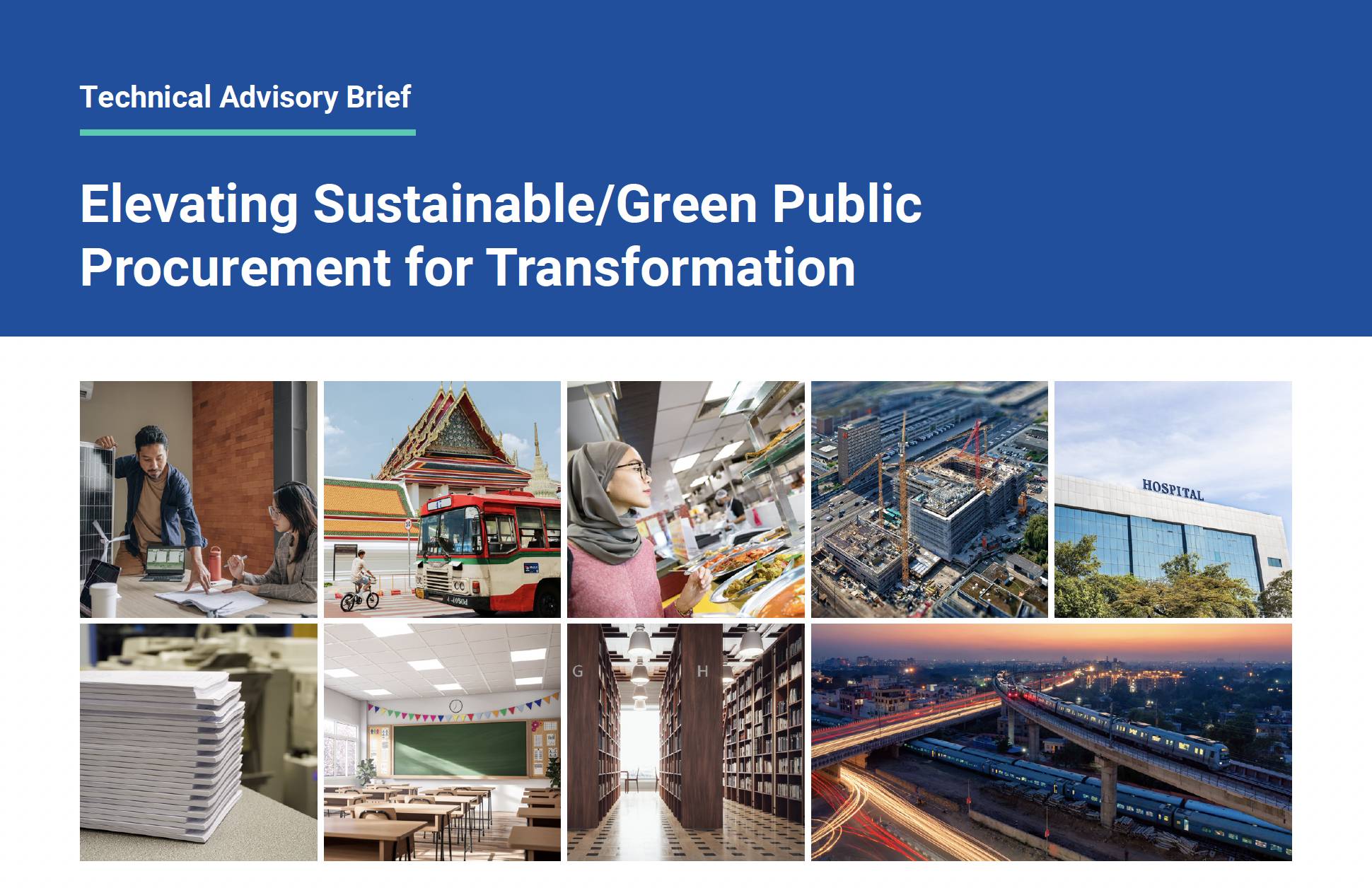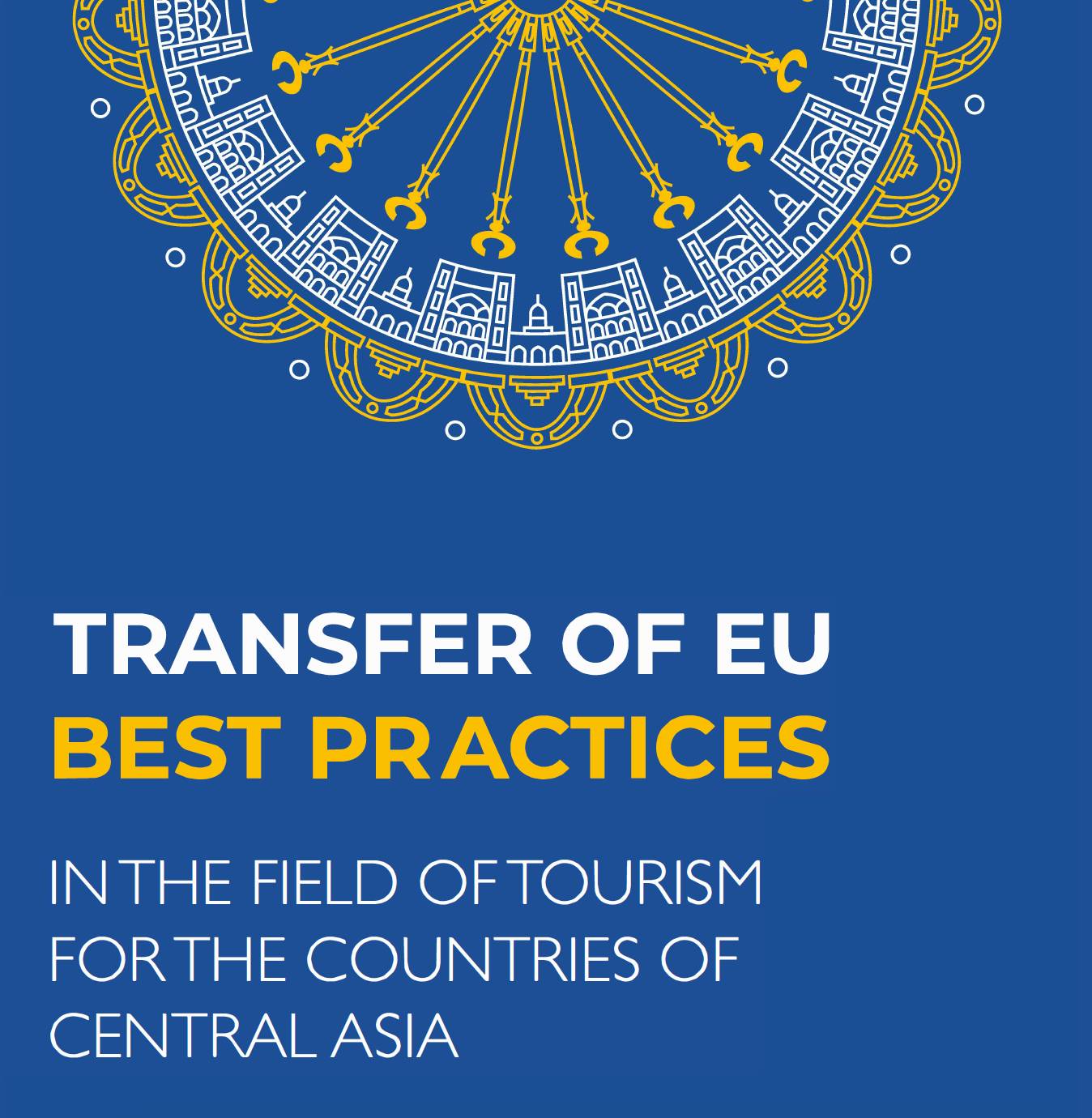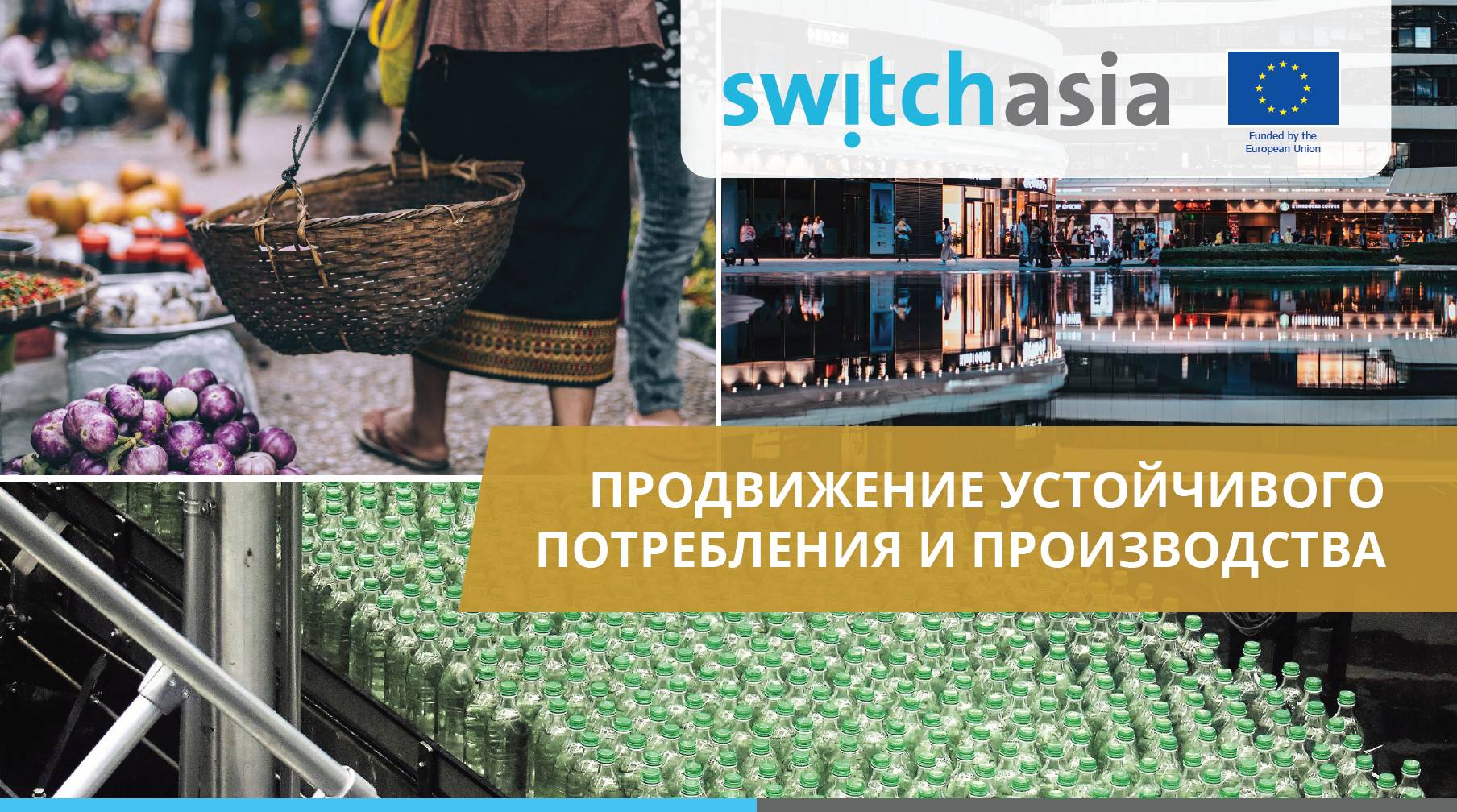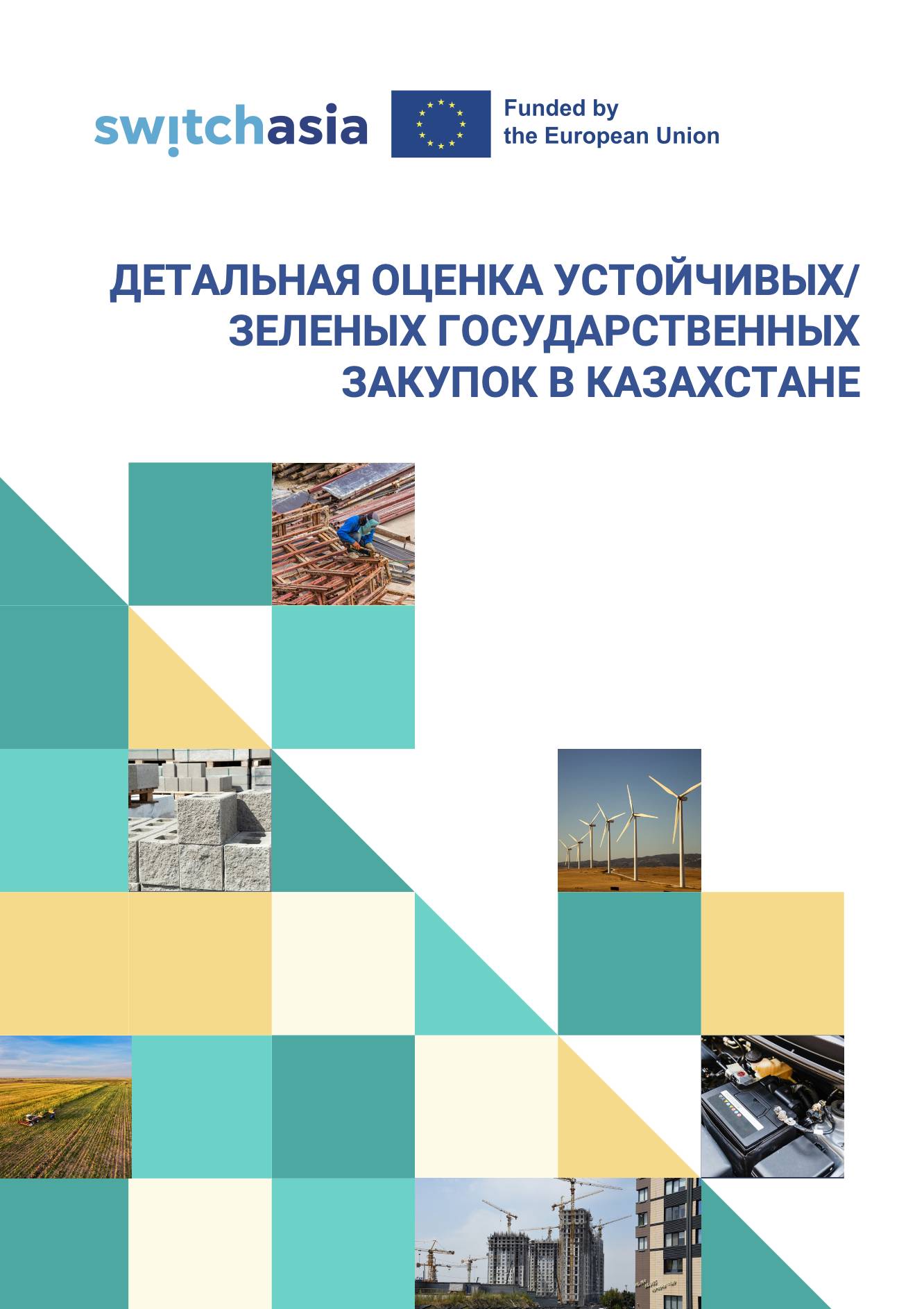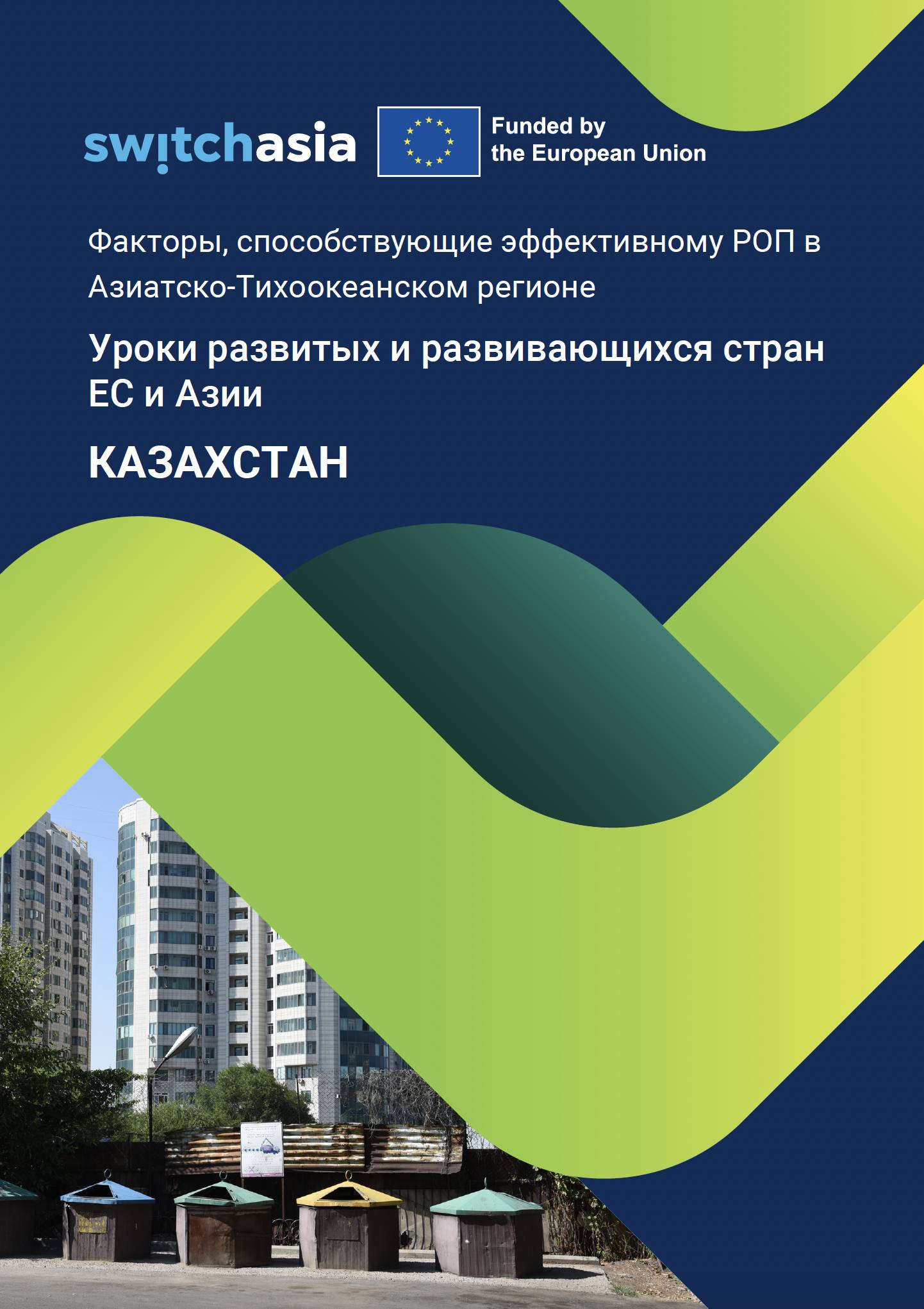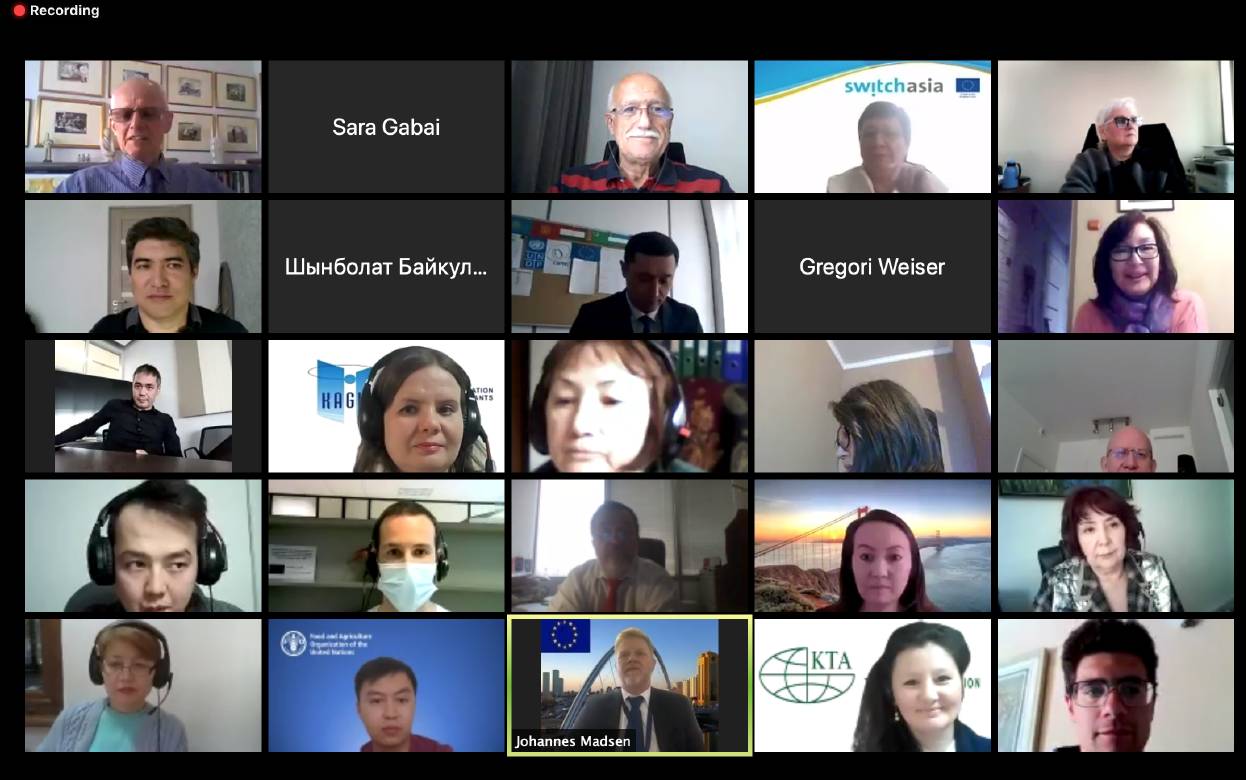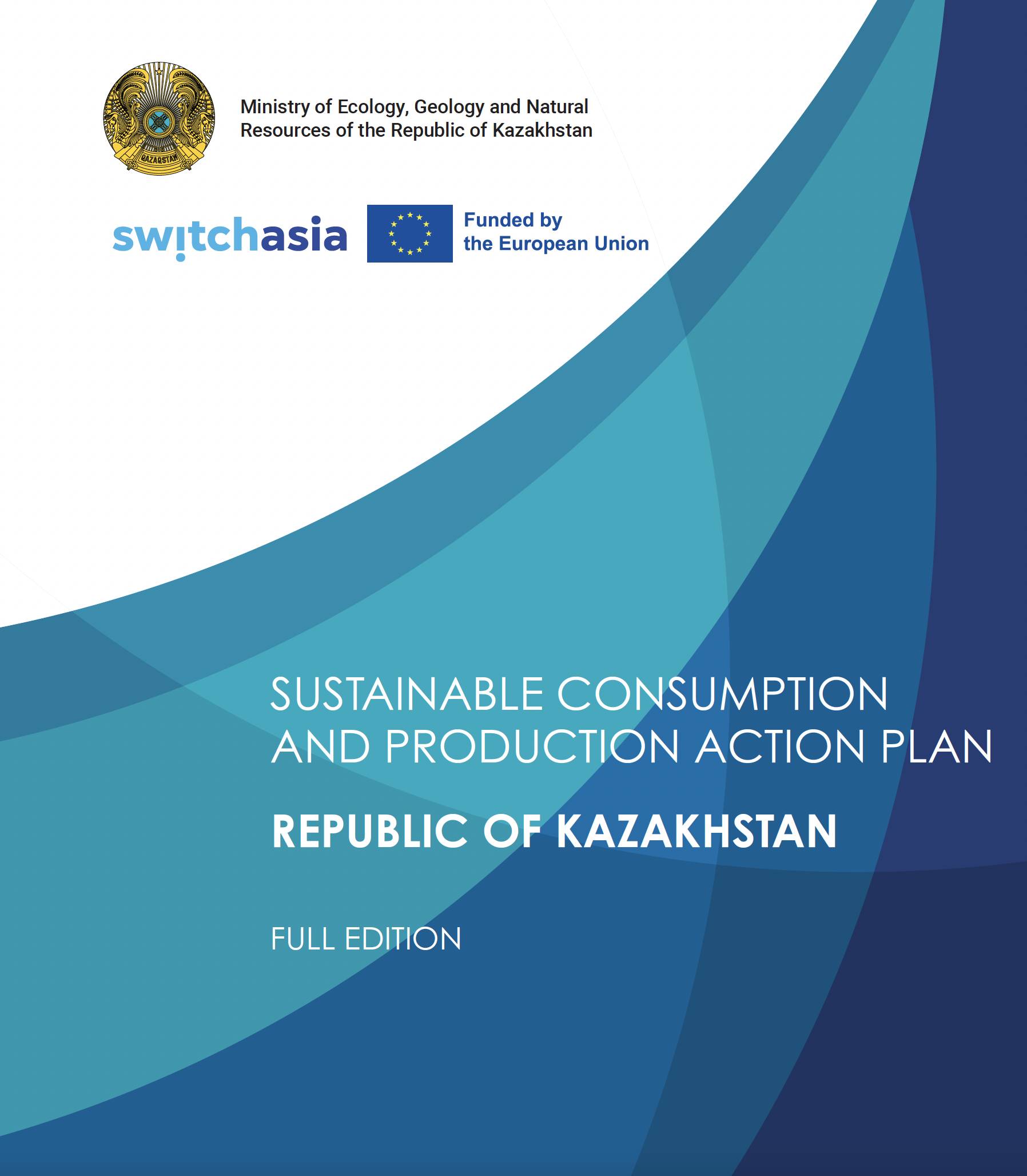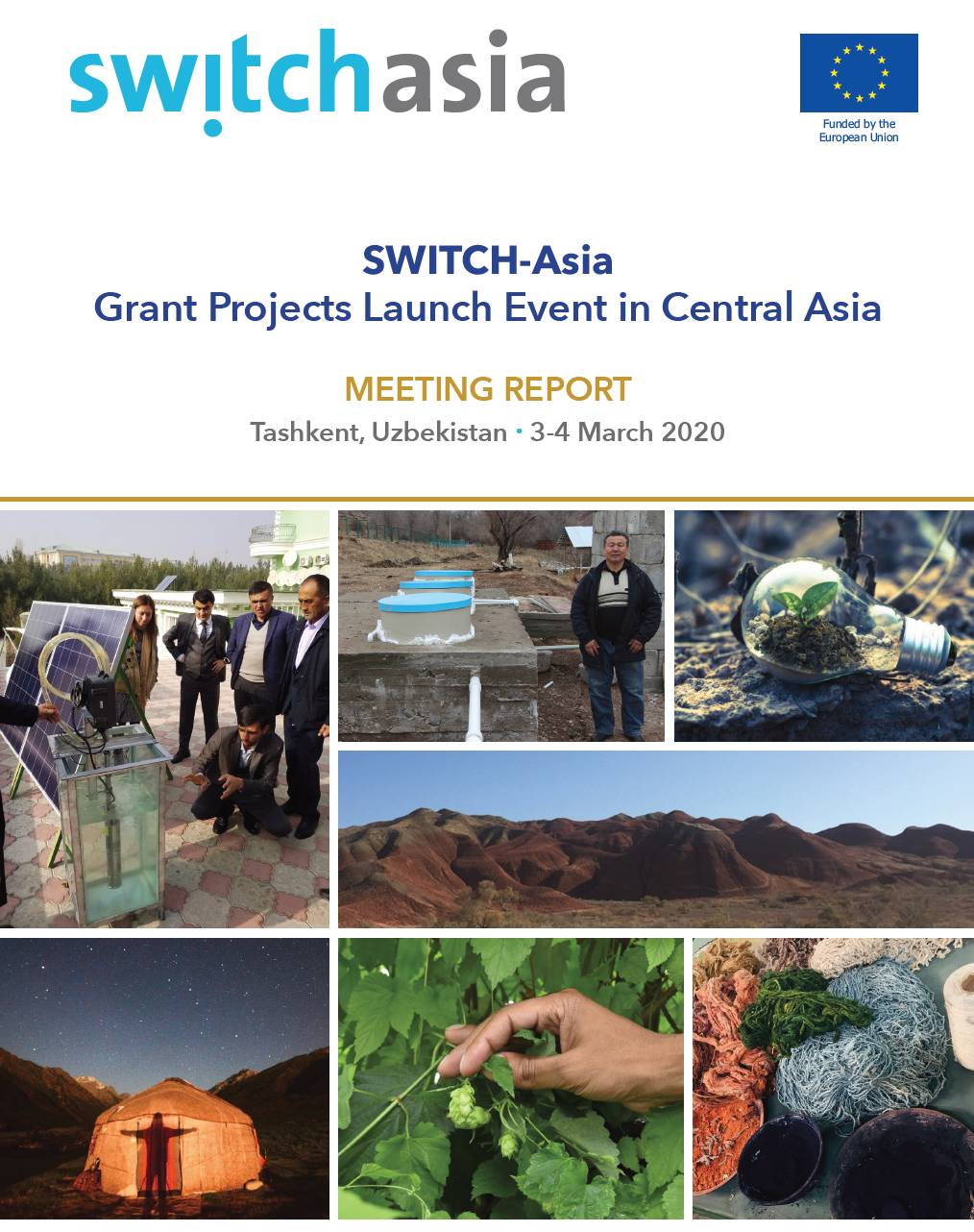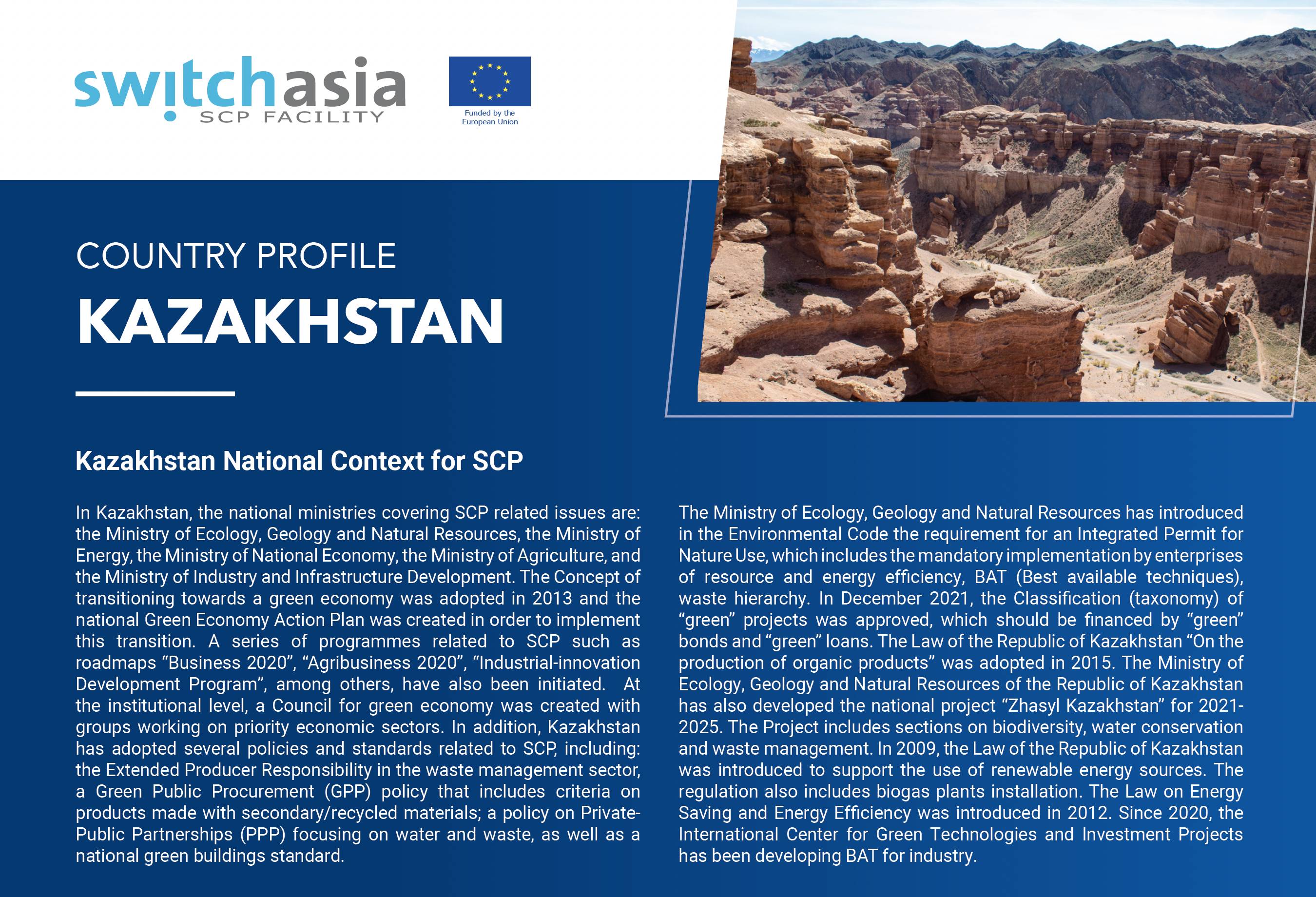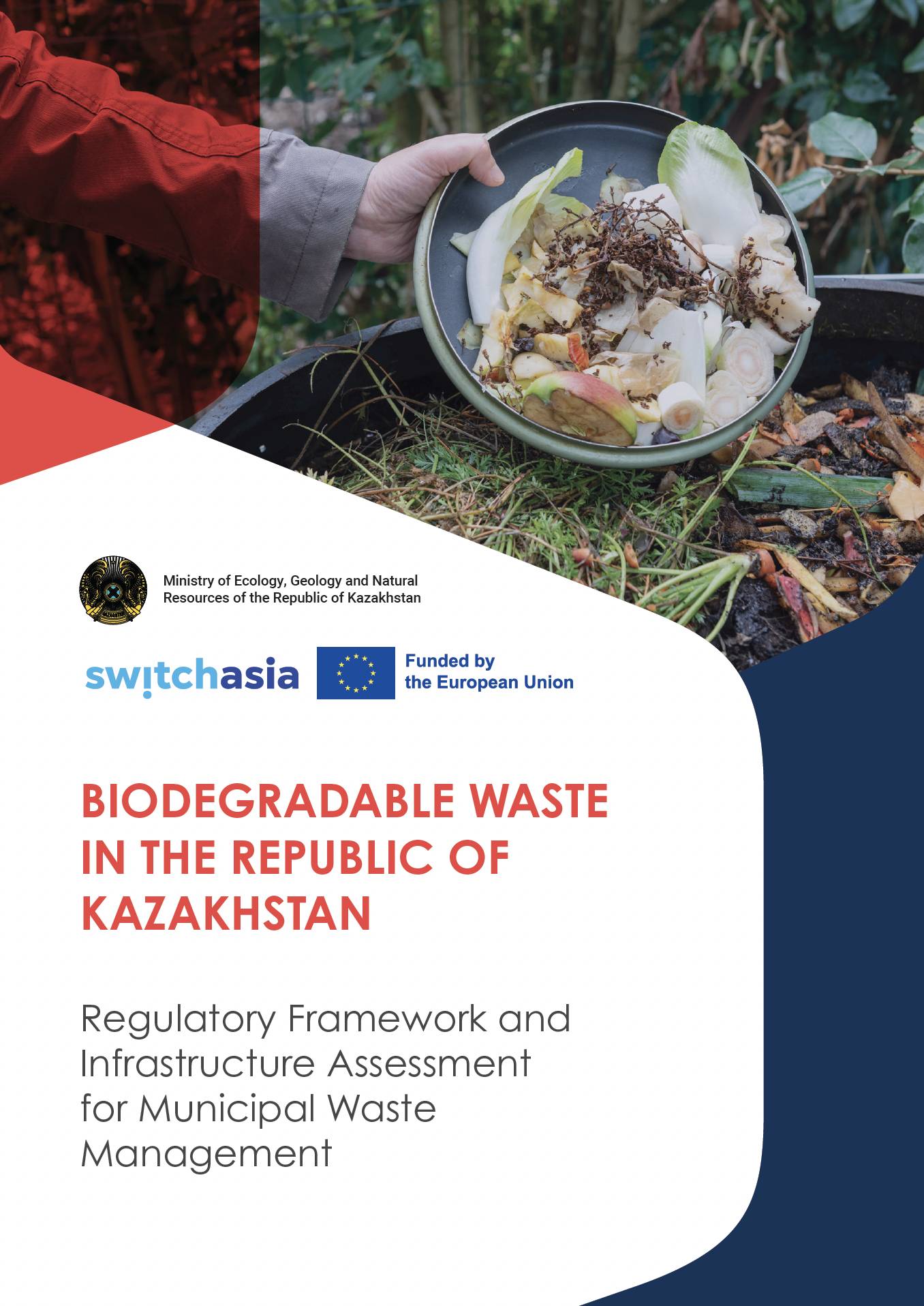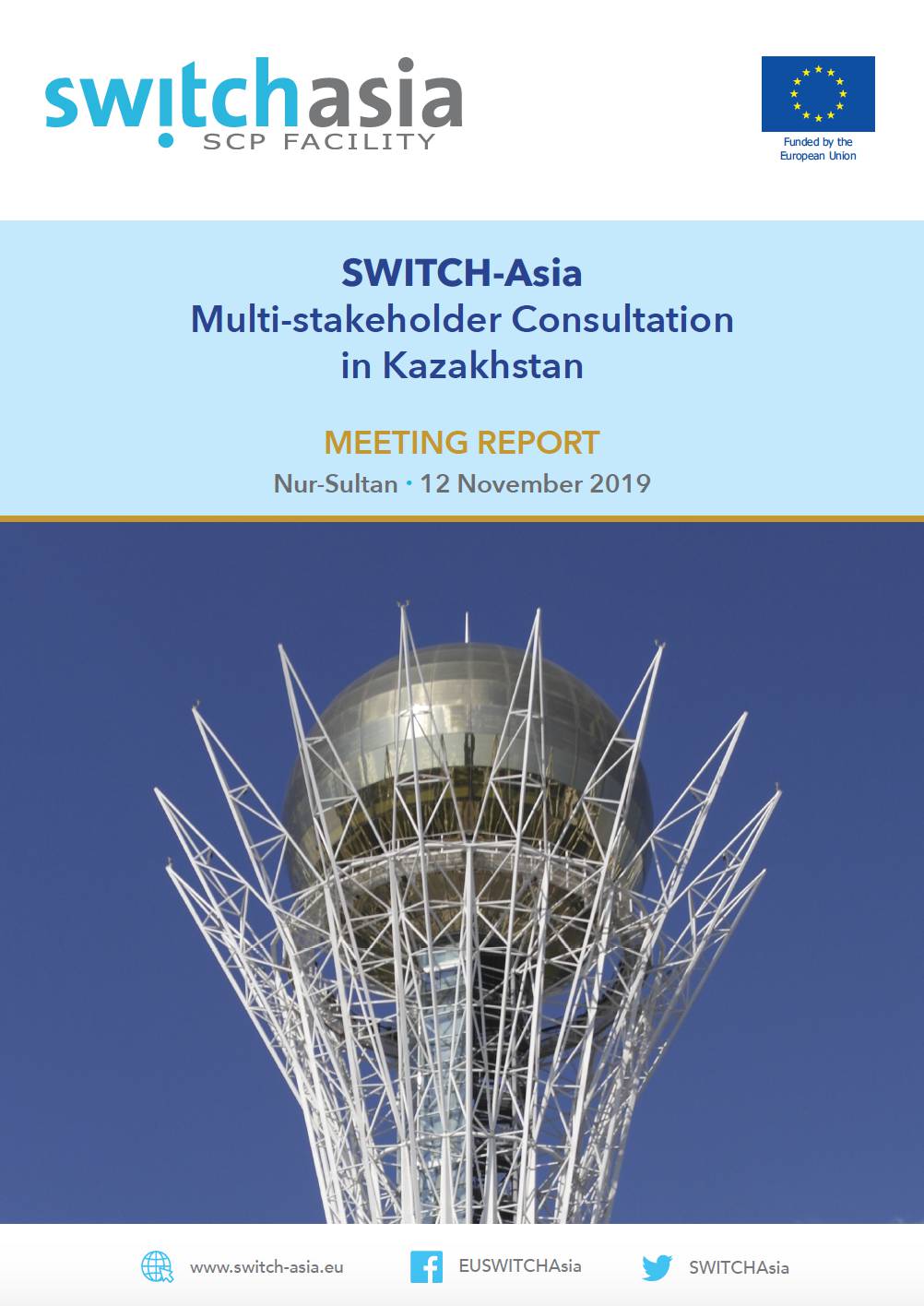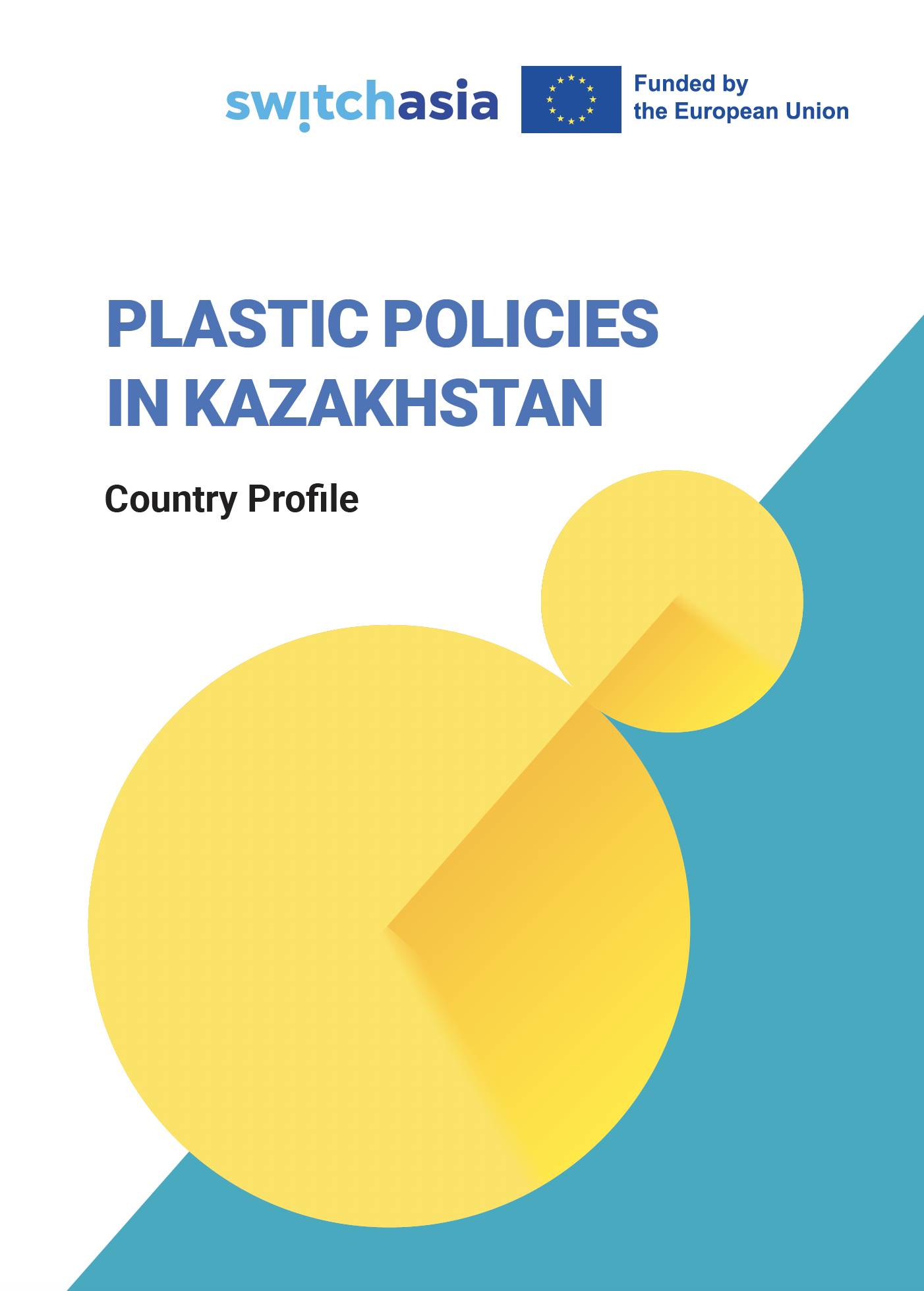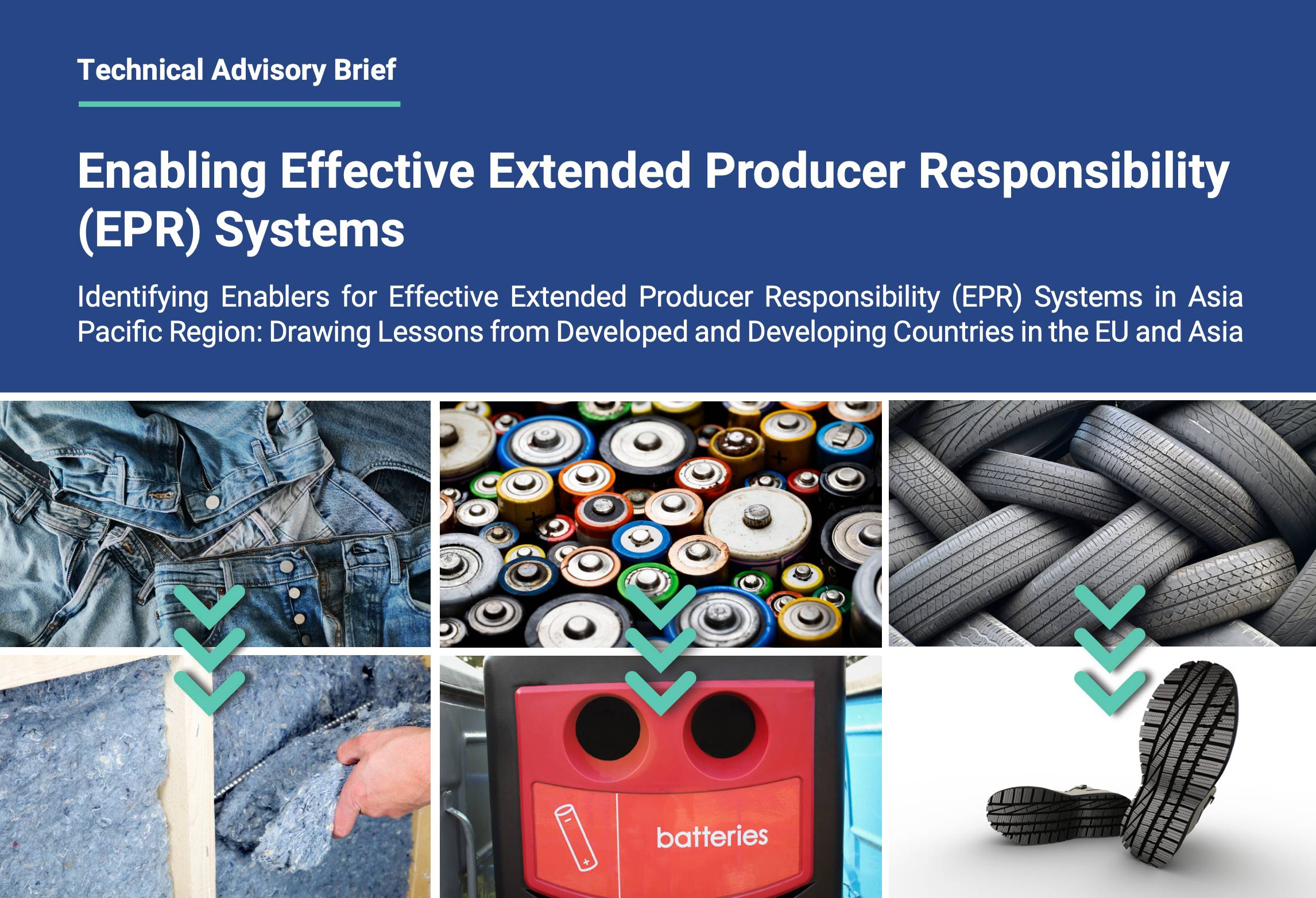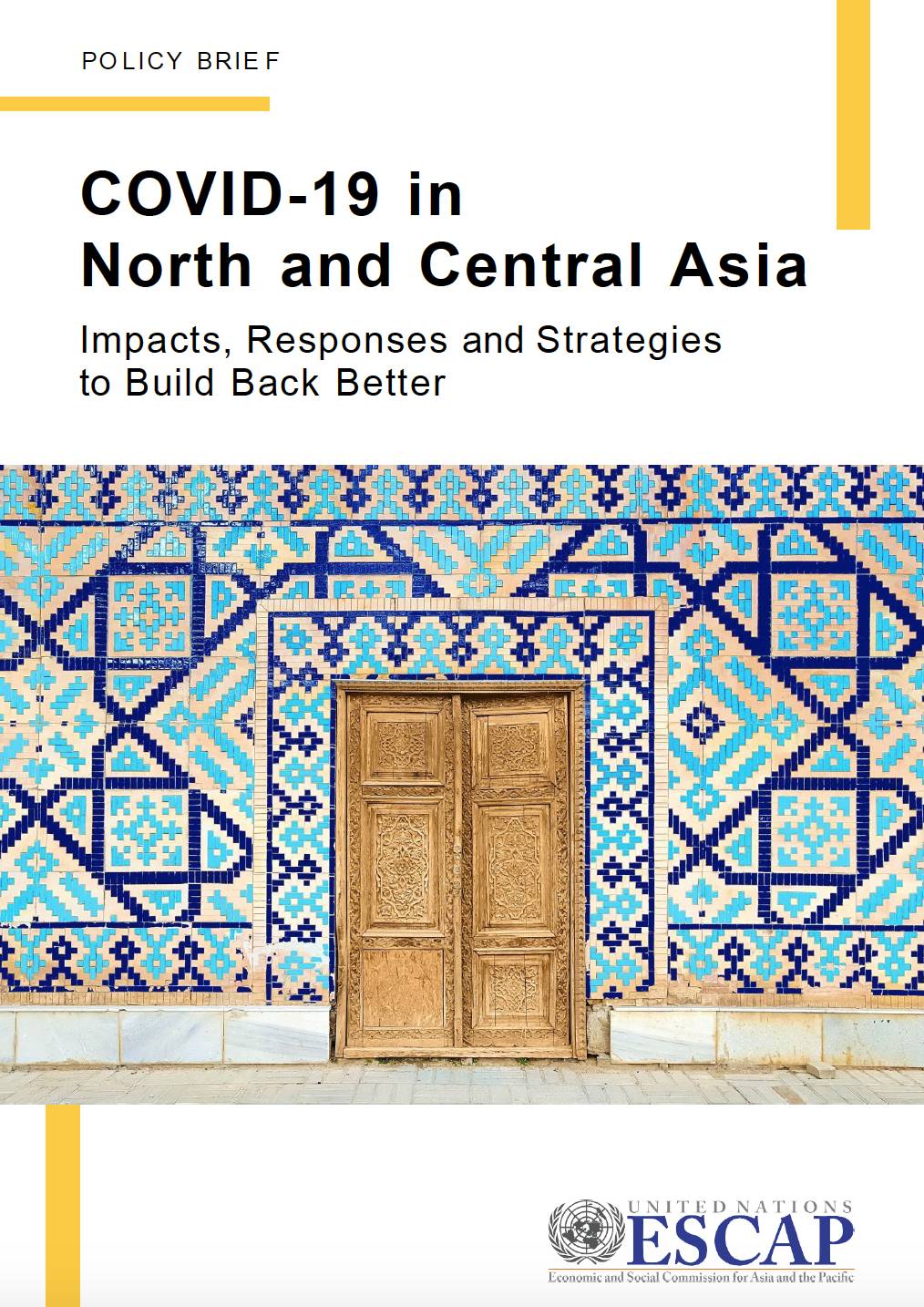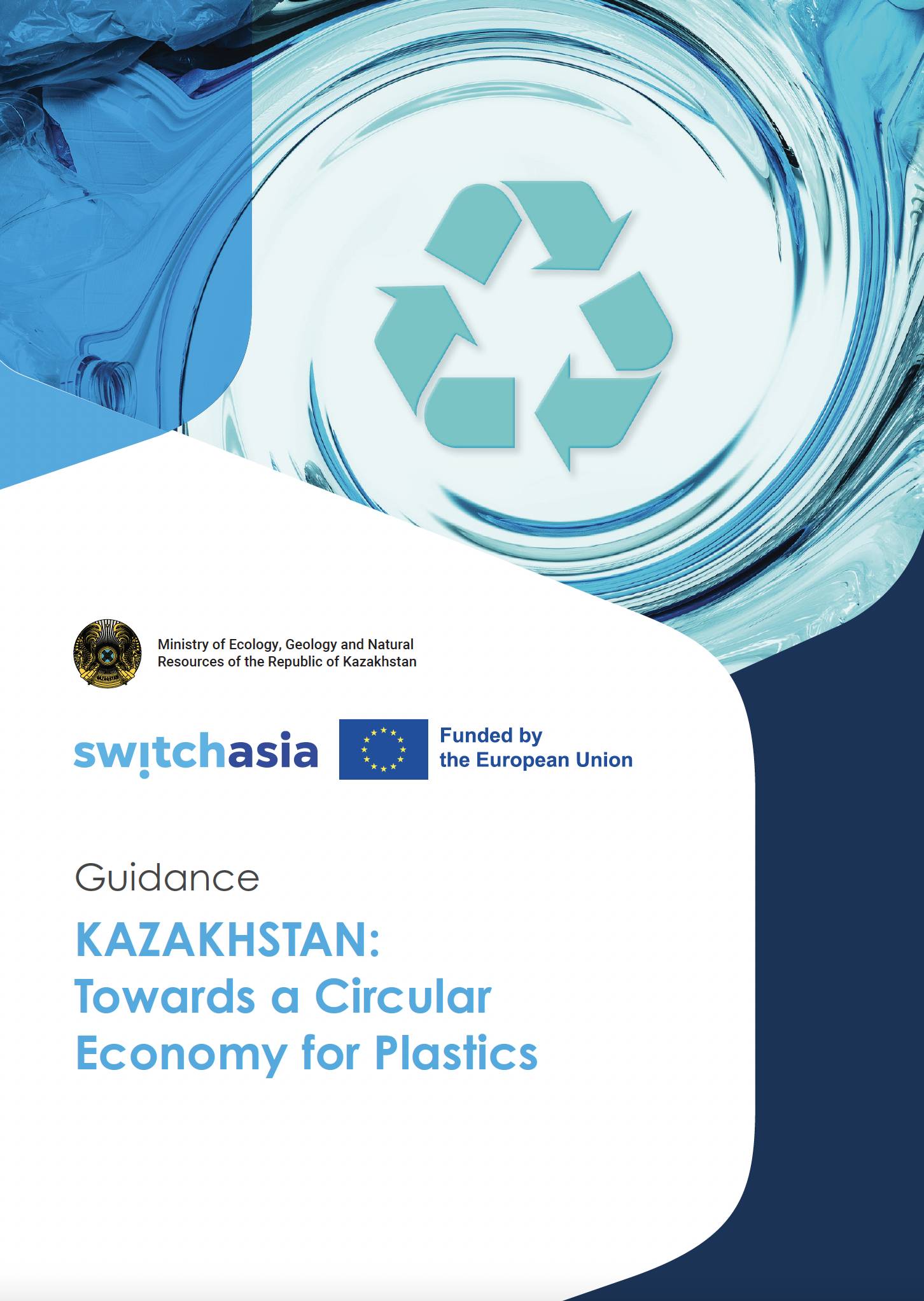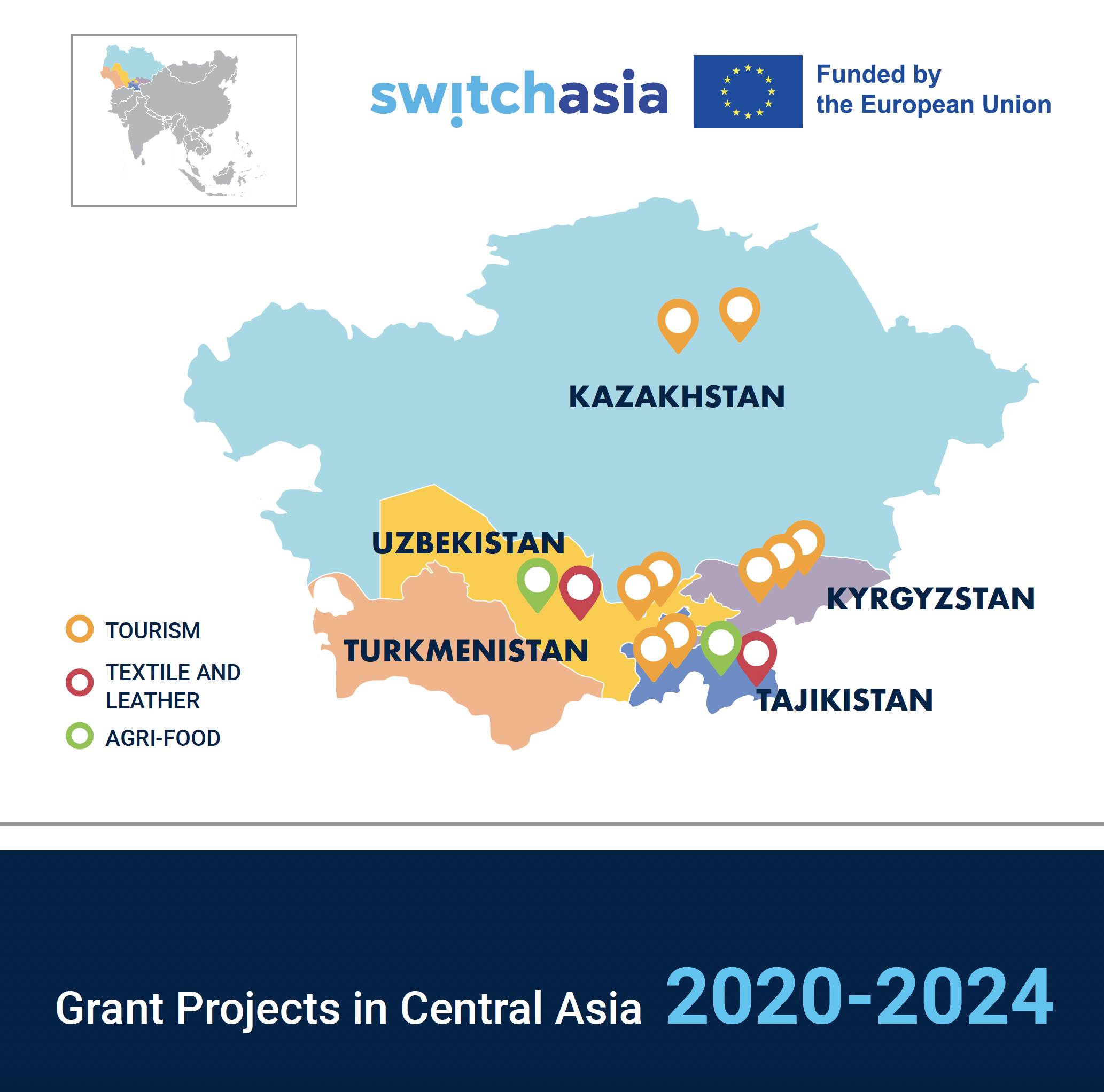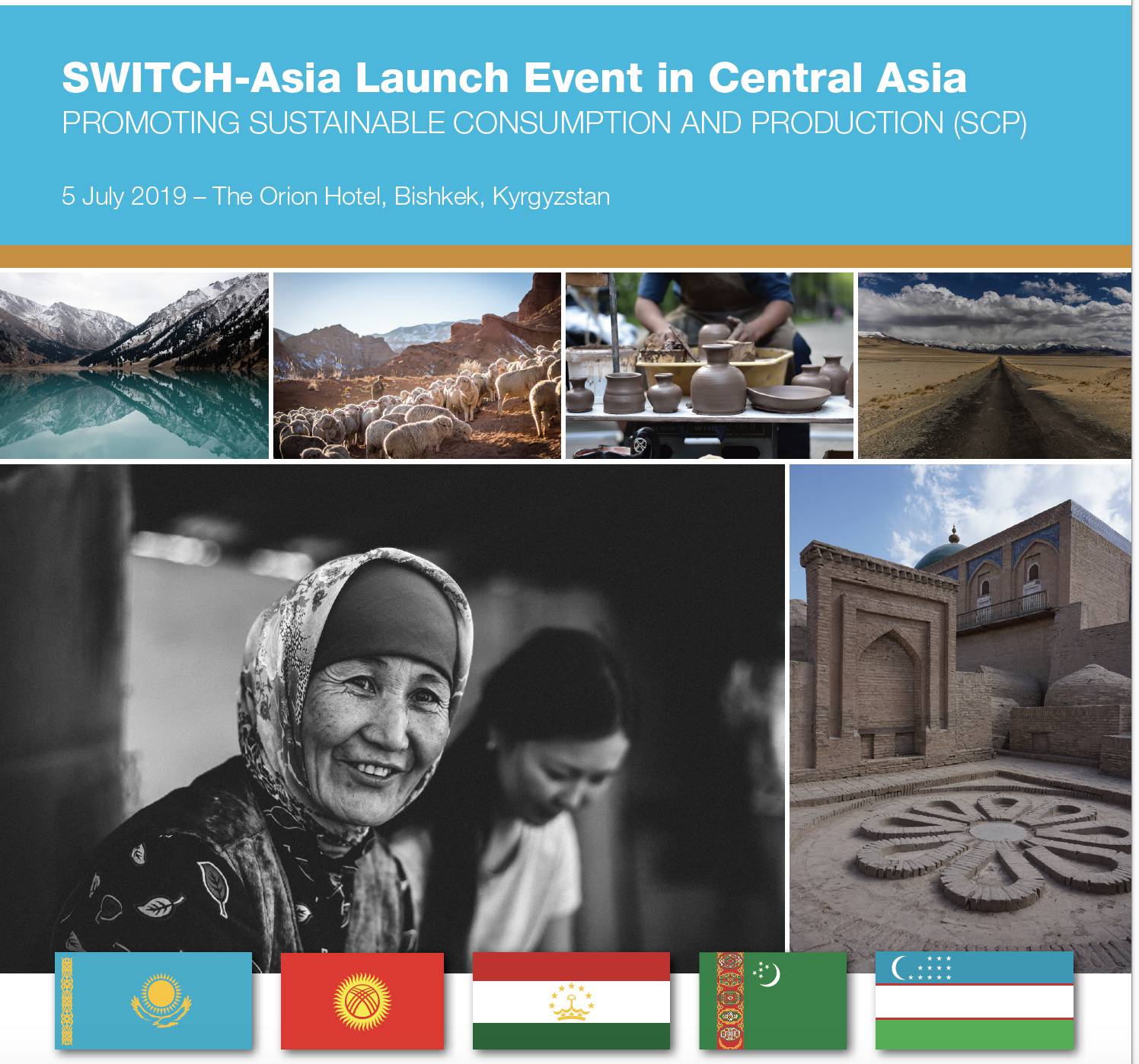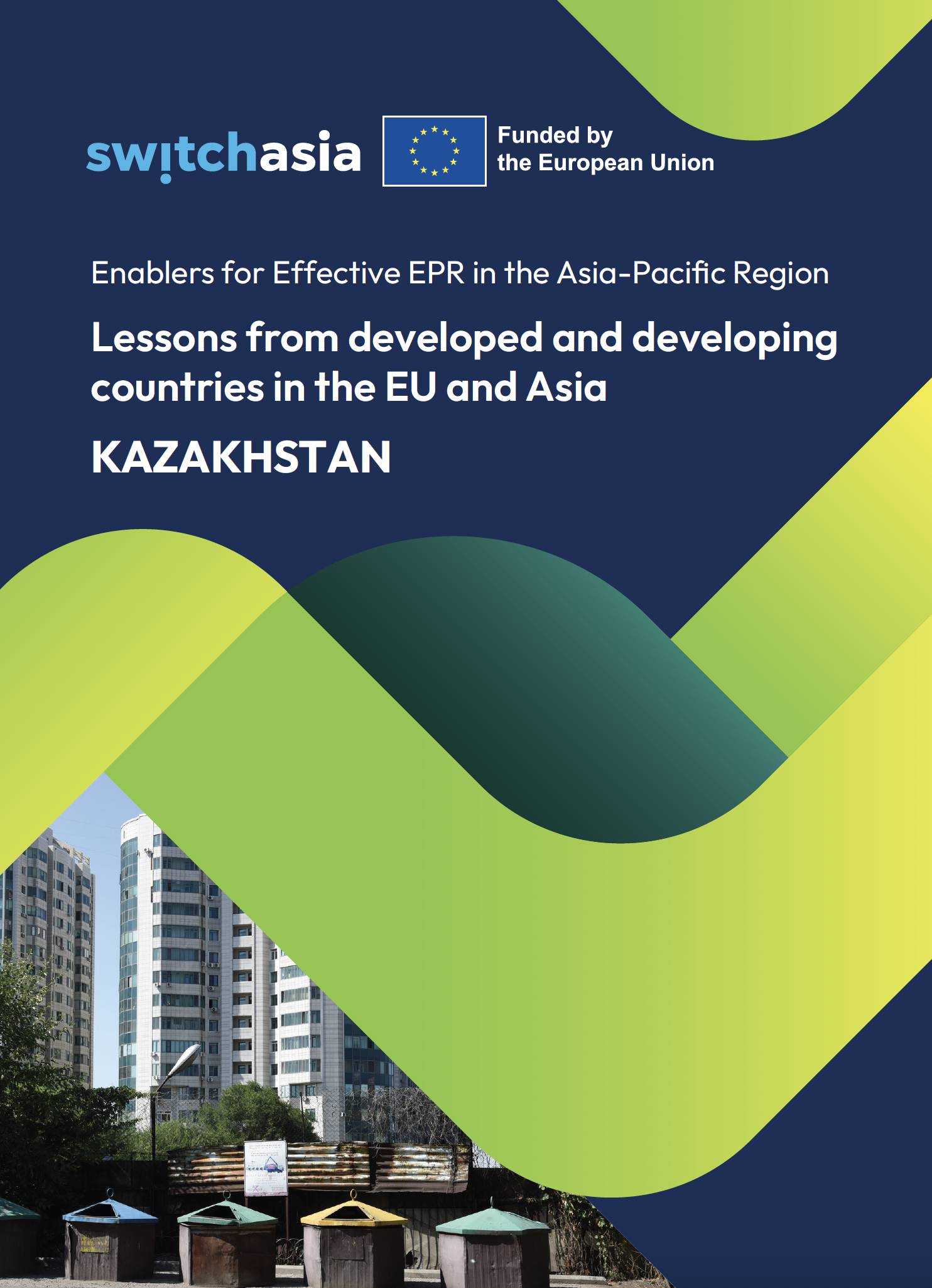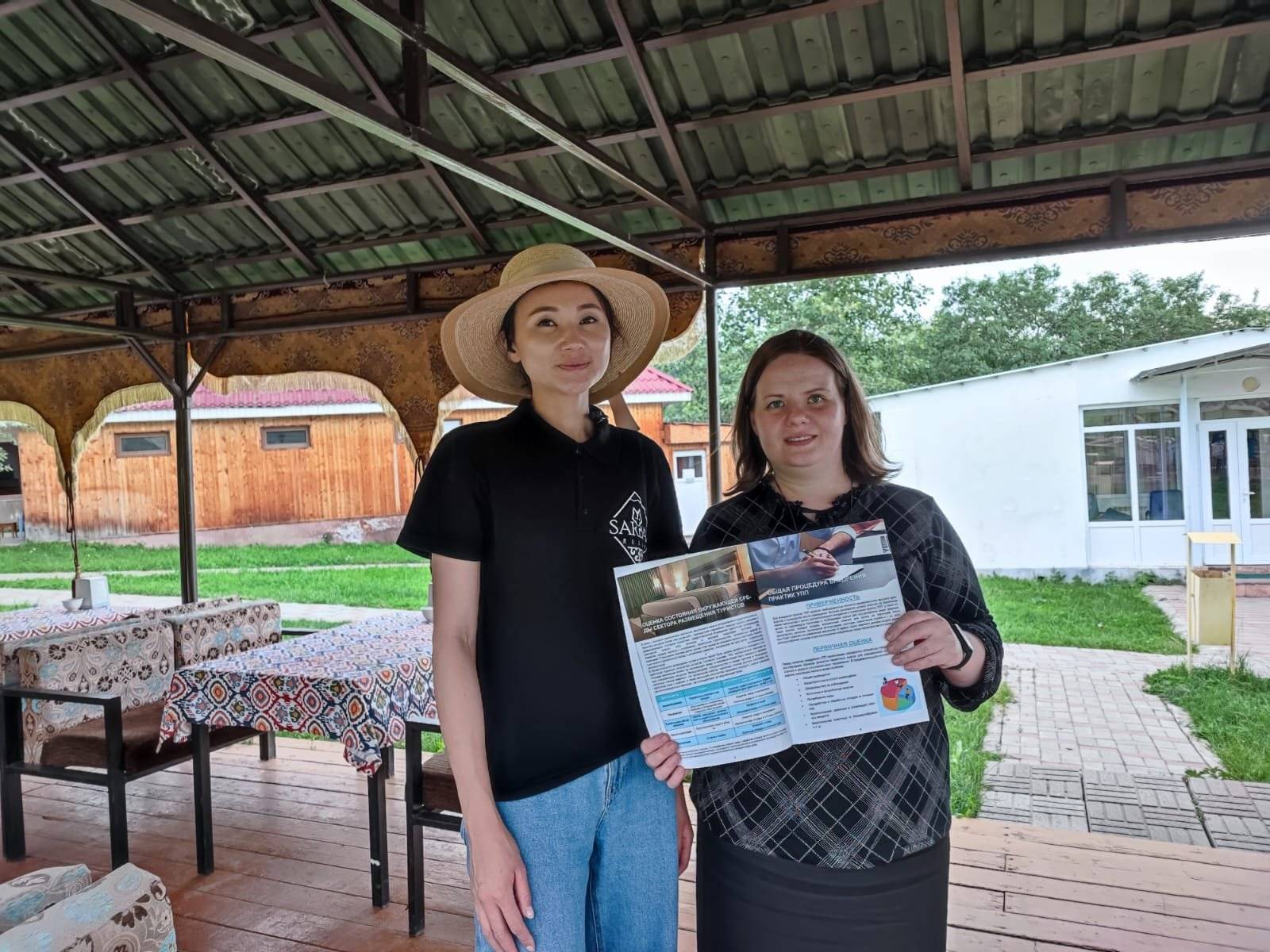
SCP Context
Overview of SCP in Central Asia
Countries in Central Asia are at different stages in terms of awareness raising and policies directed towards shifting to SCP. Most of SCP related activities have been conducted and implemented by UN Environment (UNEP) and the Secretariat of 10 Year Framework of Programs on SCP (10 YFP). The first regional meeting on SCP for Central Asian countries was organised by UNEP and the Secretariat of 10YFP in Almaty, Kazakhstan, in November 2015. During the Workshop, challenges and opportunities were discussed together with priority areas for the implementation of SCP policies and tools. Among the regional priorities, sustainable building and construction, sustainable public procurement and sustainable food systems were highlighted. Main regional challenges traced the link between poor management of water and energy resources and the significant impact this has on food supply and security, ecosystem services and biodiversity conservation. A second meeting for Central Asia and East European countries was held in Romania in 2016. Moreover, the Secretariat of 10YFP started a regional project on Sustainable Public Procurement for three Central Asia countries – Kazakhstan, Uzbekistan, Kyrgyzstan. Regional structures such as the Inter-state Commission on Sustainable Development (ICSD) and the Central Asia Regional Environmental Center (CAREC) play important roles in promoting SCP at regional and national levels, as well as providing the framework for capacity building to deliver needed changes. Among other organisations, the EU, UNDP, UNEP, UNIDO, UN ESCAP, ADB and the World Bank support activities related to SCP. In this context, the extension of the SWITCH-Asia programme to Central Asia will build on and scale up relevant actions through synergies and partnerships. EU SWITCH-Asia Launch Event in Central Asia was held on 5-th of July 2019 in Bishkek. This event was co-organised by the SWITCH-Asia SCP Facility, the European Commission, Directorate-General for International Cooperation and Development (DG DEVCO) and concerned European Union Delegations.
Kazakhstan National Context for SCP
In Kazakhstan, the national ministries covering SCP related issues are: the Ministry of Ecology, Geology and Natural Resources, the Ministry of Energy, the Ministry of National Economy, the Ministry of Agriculture, and the Ministry of Industry and Infrastructure Development. The Concept of transitioning towards a green economy was adopted in 2013 and the national Green Economy Action Plan was created in order to implement this transition. A series of programmes related to SCP such as roadmaps “Business 2020”, “Agribusiness 2020”, “Industrial-innovation Development Program”, among others, have also been initiated. At the institutional level, a Council for green economy was created with groups working on priority economic sectors. In addition, Kazakhstan has adopted several policies and standards related to SCP, including: the Extended Producer Responsibility in the waste management sector, a Green Public Procurement (GPP) policy that includes criteria on products made with secondary/recycled materials; a policy on Private-Public Partnerships (PPP) focusing on water and waste, as well as a national green buildings standard.
The Ministry of Ecology, Geology and Natural Resources has introduced in the Environmental Code the requirement for an Integrated Permit for Nature Use, which includes the mandatory implementation by enterprises of resource and energy efficiency, BAT (Best available techniques), waste hierarchy. In December 2021, the Classification (taxonomy) of "green" projects was approved, which should be financed by "green" bonds and "green" loans. The Law of the Republic of Kazakhstan "On the production of organic products" was adopted in 2015. The Ministry of Ecology, Geology and Natural Resources of the Republic of Kazakhstan has also developed the national project "Zhasyl Kazakhstan" for 2021-2025. The Project includes sections on biodiversity, water conservation and waste management. In 2009, the Law of the Republic of Kazakhstan was introduced to support the use of renewable energy sources. The regulation also includes biogas plants installation. The Law on Energy Saving and Energy Efficiency was introduced in 2012. Since 2020, the International Center for Green Technologies and Investment Projects has been developing BAT for industry.
Challenges
Poor understanding of the SCP concept, lack of inter-ministerial coordination, as well as insufficient expertise for guiding and framing needs for change, coupled with limited capacity for project development and relevant budget.
Priorities
The protection of the environment is a national priority, especially of human health. SPP, water and waste water management, housing and construction, agriculture and food safety, safe management of chemicals and integrated waste management throughout the whole life cycle are listed as high-level priorities for the country.
Recent Developments
- SCP is included into a new version of the Eco-code, as the environmental basis for sustainable development.
- The State programme on waste management is under preparation.
- A Circular Economy Strategy was implemented as a pilot project for Almaty city. In July 2018, Kazakhstan joined UN PAGE, confirming its commitment and interest in this new initiative and readiness to work in close collaboration with concerned UN PAGE agencies.
- After Rio+20, the Green Bridge Partnership Program has been implemented as an international platform for consolidation of cooperation between countries, businesses and NGOs. The International Green Technology Center was created soon after EXPO 2017. The Centre is working in the field of energy efficiency and climate change, while promoting the implementation of the green economy concept. The Association of Renewable Energy is responsible for implementing green energy technologies, organising annually the International Summit on Renewable Energy.
- Within the Digital Kazakhstan programme, an innovation ecosystem will be created, focusing on entrepreneurship development and building relationships with and between businesses, government and the scientific society. 5 “smart” cities will be developed within this program.
- Environmental targets have been integrated into the country’s Strategic Development Plan till 2025.
- In August 2019, the roadmap “Business 2025” has entered into force with 35% of inputs from SMEs.
- Kazakhstan has also developed the Roadmap for Green and Sustainable Finance. Under the scope of the UNDP project “Supporting readiness of Kazakhstan financing from green climate fund” the Low Carbon Country Programme was developed.
- The concept of transition of the Republic of Kazakhstan to a green economy is being revised until the end of 2022.
- A national Doctrine (Strategy) for achieving carbon neutrality until 2060 is being developed.
- In 2021, the Concept for the Development of the Agro-Industrial Complex of the Republic of Kazakhstan for 2021-2030 was approved. The document is planned to:
- consolidate state support for subsidizing the purchase of organic fertilizers;
- create a unified system for monitoring, reporting and verification of greenhouse gas emissions from animal husbandry;
- harmonise legislation in the field of production and turnover of organic products.
Preliminary Needs Assessment
SCP patterns have been included into the Eco-code as a basic principle of the environmental policy. Mainstreaming the latter into national and local programmes with related action plans is needed. Kazakhstan has also identified pathways to digitalisation. In this regard, it is necessary to strengthen activities on the implementation of SPP and supply chain management. Major challenges include poor and inefficient waste management in the industry and at municipality level, despite the existing comprehensive legislation. Support must also be provided to initiatives against plastics misuse, disposal and pollution, as well as Green standards implementation in the building sector, with effective guidelines including for “passive houses”.


